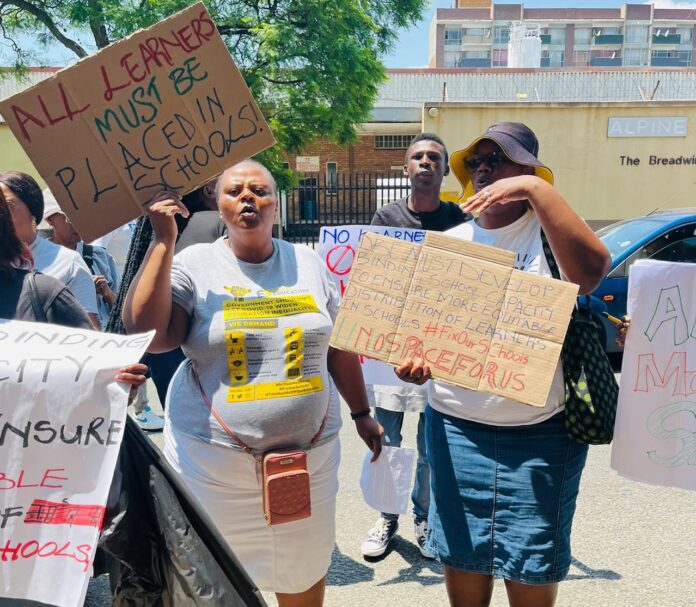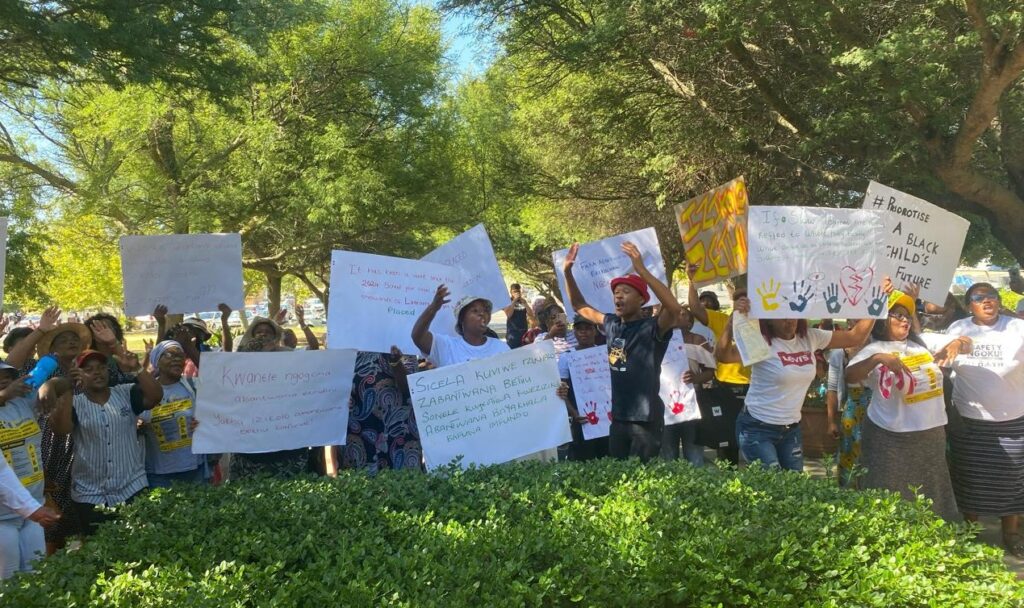

Johnathan Paoli
THE NGO Equal Education has demanded the immediate placement of over a thousand learners in the Western Cape and Gauteng from the provincial departments that it said are being kept out of class.
EE said in a statement on Wednesday that it would picket at the Benoni and Metro East education department district offices respectively, against the ineffective and frustrating school admissions processes keeping thousands of learners out of school.
The NGO said that the online school admission application process posed significant challenges for parents and caregivers seeking to enroll their children and that while technological progress was commendable, there was a need for alternatives to accommodate those who may not have access to digital tools.
“Provincial education departments, particularly in the Western Cape and Gauteng, repeatedly state that schools are overcrowded or oversubscribed because they do not have the funds to build more schools. They also continue to blame parents for applying late or for only applying to schools that are in high demand,” the statement read.
EE said that in light of the re-prioritisation of school infrastructure money, many learners remained unplaced and missing because space in schools have become the new luxury and overcrowding threatens access to equal and quality education.
Equal Education demands include: all unplaced learners must be placed immediately; that the provincial education department equip all schools with sufficient and appropriate infrastructure as required by the Norms and Standards for Public School Infrastructure; and that provincial education departments facilitate forward-looking infrastructure development plans to address current and future overcrowding in schools; the development of binding school capacity norms to ensure more equitable distributions of learners in schools; and that national and provincial treasuries allocate enough funds to school infrastructure and provide the necessary oversight to ensure the funds were appropriately spent.
The Equal Education Law Centre in a statement on Sunday said that even though schools in the Western Cape reopened on 17 January, thousands of learners, largely in under-resourced areas with overcrowded schools, are still without a school and were unable to unlock the most basic component of their constitutional right to access education.
The law centre said that it remained aware of the challenges faced by the provincial department, however reminded the WCED about declining its request early last year for admitting pop-up stations into the beginning of the school year in order to assist with late school applications.
“The WCED no doubt faces significant challenges in ensuring sufficient space in schools, however, many of these factors show up each year and are therefore predictable, yet the WCED’s response has been inadequate,” the centre said.
EELC said that the department did not acknowledge or address other critical factors contributing to this crisis and claimed that there were instances of gerrymandering by former model-C schools of their feeder zones in order to exclude economically disadvantaged and Black learners as well as exclusionary language policies.
The centre said that despite the immediate realisability of the right to basic education enshrined in the constitution, the education budget continued to dwindle, with more impending cuts.


The EELC said that despite committing R2.9 billion in March last year to the Rapid School Building Plan for 21 new schools and 289 classrooms, the WCED backtracked in November and scaled down to only nine new schools and 496 classrooms due to budget constraints and Treasury deprioritising social spending.
The department previously estimated that R105 billion was needed to meet minimum standards nationwide, seven times more than the adjusted 2023/24 school infrastructure budget of R14.2 billion.
“As these cuts persist, the ability of provincial education departments to deliver essential schools and classrooms is poised to decline,” the centre said.
WC MEC for Education David Maynier previously said his department was finalising the operation of 10 new schools and three replacement schools as part of its RSB programme.
“We will work to place every learner for whom an application is received going forward, but we want to be clear that schools are full in the Western Cape,” Maynier said.
In Gauteng, the department has called upon parents to consider township schools in light of the limited amount of spaces at some of the more popular schools in the province, as well the general improved performance of township schools in the 2023 NSC examinations.
INSIDE EDUCATION





